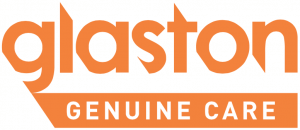Glas Herzog, Germany
Reference - Europe
Glas Herzog’s smooth startup of Glaston SPEED BOX IG line
“We have a great deal of confidence in our supplier,” says Andreas Herzog, Sr., Managing Director of Glas Herzog. “Our cooperation with former Bystronic glass – and now Glaston – is just as you would want it to be as a customer. In fact, we’re one of their oldest customers – 44 years and counting.”
Glas Herzog was founded by the first Andreas Herzog in 1948 as a glass grinding factory in Waghäusel, Germany, near Heidelberg. Over the course of nearly 75 years – and three family generations – the company has evolved from a purely craftsman’s business to being flat glass experts. Today, it offers a full range of functional and insulating glass to window manufacturers in Germany and neighboring countries.
In 1978, Glas Herzog purchased its first Lenhardt insulating glass line. This makes the company one of Glaston’s oldest customers. For special glass production, Glas Herzog still operates a 1987 Lenhardt washing machine and 1991 Lenhardt inspection station.
The founder’s son, Andreas Herzog, Sr., along with his sons Andreas Herzog, Jr., and Thomas Herzog, say the key to developing and managing their business successfully over the years has been to retain “the human touch” as a top priority in all they do.
In December 2020, the Glaston SPEED BOX IG line was delivered to replace an old Lenhardt insulating glass line that had been operating for 26 years. Starting production in January 2021, this new line is running smoothly alongside two other Bystronic glass insulating lines that run fully automatically. Together, they enable Glas Herzog to produce more than 1,000 insulating glass units daily. The new line provides the company with high output, easy operation and robust construction for high machine component reliability. This individually configurable production line for insulating glass units with conventional spacers delivers high flexibility, excellent productivity and a long service life
“Without any manual intervention, prefabricated spacer frames are automatically filled with desiccant, precisely coated with butyl and then automatically positioned onto the glass. The shortest possible cycle times are achieved by parallel filling and transport processes. We can produce different frame dimensions, profile widths and glass thicknesses in any sequence. Insulating glass unit thicknesses of 80 mm are now possible.”
Similar references
FLACHGLAS, Germany
#flat glass laminating #glass processing #glass quality #laminated glass #laminating #ProL #ProL-zone #quality control #reference #safety glass #upgrades
At FLACHGLAS, a culture of operational excellence fuels continuous modernizations. “The latest Glaston ProL upgrade for our 50-year-old lamination line has helped us raise performance, save energy and automate production with the push of a button,” says Martin Geiss, Technical Manager at FLACHGLAS Wernberg.
Read moreFull Glass, Peru
#architectural #automation #flat glass tempering #glass tempering #glass tempering process #iControL #RC Series #reference #tempered glass
“We are very satisfied with the quality of our new RC Series tempering line and the glass it produces. The Vortex Pro convection control system is excellent. The furnace made by Glaston China is just as well manufactured as the previous furnace we bought from Glaston’s factory in Finland,” says Frank Calderón Gómez, Managing Director at Full Glass in Lima, Peru.
Read moreAGC Interpane, Germany
#architectural #automation #glass processing #IG unit #insulating glass #reference #technology
“I walk through our insulating glass production facility every day with pride,” says Daniel Bruckelt, Production Manager Insulating Glass of AGC Interpane in Plattling, Germany. “Not just because everything is so well organized and structured, but also because Glaston has given us a coherent concept for our unique insulating glass (IG) production. And this is what allows us to remain top-of-mind for challenging world-class projects.”
Read moreArticles
GPD 2023 Presentations – Sustainability and trends
The Glass Performance Days 2023 conference brought forward a compelling array of presentations focused on sustainability and emerging trends within the glass industry....
Read moreGPD 2023 Presentations – Glass processing technologies
The Glass Performance Days 2023 conference showcased a range of pioneering presentations on glass processing technologies, bringing together industry leaders and...
Read moreGPD 2023 Presentations – Architectural glass
The Glass Performance Days 2023 conference has once again brought together a wealth of knowledge and innovation from the leading minds in the glass industry. We...
Read more
